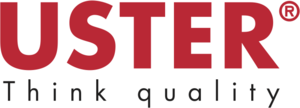Simon Locher, Business Consultant at MondayCoffee, introduced the Modern Workplace Solution CoffeeNet 365 at EPRO GROUP, an independent group consisting of four Swiss engineering companies.
The goal was to further standardize and digitize collaboration and make it more efficient within the group and on projects and to merge stand-alone solutions in a user-centric way. Alain Schlunegger, project manager on the customer side and member of the management board at EPRO GROUP, is satisfied with the result. MondayCoffee consultant Simon Locher still speaks highly of the project. A conversation with the customer and our consultant about the requirements for a good collaboration and important success factors when changing working methods.
Alain Schlunegger (EPRO GROUP) and Simon Locher (MondayCoffee)
Mr. Schlunegger, project management on the customer side is a key success factor for our projects. The introduction of our Modern Workplace solution at EPRO GROUP went really well - because you took on the role of project manager in an exemplary manner, as our Business Consultant Simon Locher says. In your view, what does a project manager need to bring to the table in order to make the modernization of the way we work a success?
Alain Schlunegger: A vision, a hard deadline and a huge commitment.
Digitization is part of EPRO GROUP's vision and the entire management is behind this vision. In addition to business processes, we also set out to further digitize internal work processes. This is where we picked up with the Modern Workplace project:
We had only six months to introduce the Modern Workplace solution (under the name EPRONET). On January 1, 2021, the EPRO GROUP companies were united under one roof. We had to take advantage of this opportunity - and it gave us a lot of drive. To accomplish this, one thing was needed above all: commitment - from me personally, from my colleagues at EPRO GROUP, and of course from Simon as a consultant.
In my opinion, project management is less about professional competence (that's what consulting is for) and more about the will to change things. Of course, you only have the will if you are supported and have the authority to make decisions. That was the case for us.
Simon Locher: I can only agree with that. Making decisions is so important - you can always make adjustments later on. I would add 'business know-how' to the profile of an ideal project manager. Alain knows every corner of his business. This deep understanding of the business was very helpful. It also allowed us to engage the right stakeholders at the right moment.
Alain Schlunegger: A decision is better than none. We decided some things at the beginning without knowing exactly what they meant. Because in the beginning, a lot of things are still very theoretical. I was relieved when we then switched to 'doing' and I noticed in the test environment that the decisions were correct and worked. For me, the step from concept to practice could have been even faster. After all, it's only in reality that you can really communicate what's going to be different and demonstrate best practices.
Mr. Schlunegger, you have devoted a lot of time to the project. We are often asked how much capacity such a project requires. Can you quantify your effort in these six months?
Alain Schlunegger: Between 20 and 40 %. Especially towards the end, it got pretty intense.
Simon, you also put your heart and soul into it. You felt like an intern at EPRO GROUP. That is not a given for a consultant. What defines a constructive and successful collaboration between consultant and client?
Simon Locher: Mutual trust is the key. It starts with giving each other the feeling that we are working together towards a mutual goal. Then, of course, there is communication - which can sometimes go beyond business.
What I also experienced in a very positive way at EPRO GROUP is the evaluation of success and failure. We had successful phases in the project, but also unpleasant issues, which we dealt with constructively. Everyone did their best to solve the problems and continue to pursue the goals that had been set.
Alain Schlunegger: We are an SME. There is only one direction - forward. And at full speed. Performance orientation is above everything. Simon shared this attitude.
“We took the employees by the hand and paid great attention to ensuring that they were provided with as much as possible - in other words, they only had to start practicing. ”
And are you satisfied with the service, Mr. Schlunegger? What are you particularly proud of when you look back on the EPRONET's launch?
Alain Schlunegger: Yes, I am satisfied. I was particularly overwhelmed by the broad acceptance. There were some hesitations in the organization about IT projects. Even though EPRONET was not a classic IT project, it was seen as such.
What did you do differently?
Alain Schlunegger: We took the employees by the hand and made sure that as much as possible was made available to them - in other words, they only had to start using it. I'll explain this briefly with an example: In our EPRONET, we have project workspaces for handling our projects. There are three different templates for these workspaces. Depending on the size, one of the three is chosen and the new project workspace is created. This is not done by the employee, but by a central point of contact (at the push of a button, by the way) - because when a new project is started, a number of other secondary processes come into play.
Simon Locher adds: Therefore, for the employees, the processes are clear. They can concentrate on actually managing their project.
The acceptance of the solution is also due in part to Alain as a role model. His enthusiasm resonated with the others. He also knew the organization so well that he always knew where the heat was and how to calm the waters. In the trainings we held, he was not only present, but he also took an active part. He picked up the participants on the vision, but was also able to answer everyday questions. That gave the employees a lot of reassurance.
According to you, Simon, EPRO GROUP had committed itself to 'tagging' like almost no other company and had said goodbye to document folders and subfolders. How did you manage to do that? Replacing file servers and folders often proves to be one of the most difficult steps towards a digital way of working.
Alain Schlunegger: We had optimal conditions for this - the merger of the two companies. Both companies had completely different folder structures. What they had in common: Both were extremely complex. Tagging saved our day, but it also cost me a lot of time. I didn't want to start with just five tags and leave the rest to the employees, but rather provide and pre-structure as much as possible early on. 80% of our work is project documentation - with recurring tags. These had to be regulated.
Simon Locher: Alain saw the advantages of tagging early on. But more importantly, he also dared to go down the path - and he was even able to convince the 'folder dinosaurs'. Mainly because he thought ahead of the tags. He didn't just make the announcement "starting tomorrow, we'll be tagging," but dove deep into the topic. This meant that even during training, for example, it was possible to concentrate on 'doing' and showing the benefits.
Mr. Schlunegger, has tagging led to employees finding what they are looking for more quickly today? How do employees benefit from EPRONET?
Alain Schlunegger: Yes, employees can access data and documents more quickly today. In contrast to the past, they always have access to everything, regardless of location. Here we have a clear efficiency gain.
Today, all applications are integrated in one place and on one platform. In the past, you had to access different apps for different tasks. EPRONET does that for me and provides me for the task at hand with the right app in the background.
“Today, employees can access data and documents more quickly. Unlike in the past, they always have access to everything, regardless of location. Here we have a clear efficiency gain. ”
One example is the planning, conducting and follow-up of meetings. In EPRONET, I do all this in one workspace. In the background, the necessary apps (OneNote; SharePoint; Planner) are automatically provided and used. The information is then immediately available to the right group of participants.
The meeting functionality is eagerly used in EPRONET. Are there functionalities in EPRONET that you would have expected more of?
Alain Schlunegger: Yes. We have the possibility to chat (Yammer) on the EPRONET's homepage. That hasn't worked so far. I assume that the users do not want to expose themselves too much. They prefer chatting within Microsoft Teams or project workspaces. We use the start page primarily for CEO communication.
But you don't just use EPRONET internally; you also invite customers to project workspaces. Have you received any feedback from customers?
Alain Schlunegger: We only use EPRONET occasionally for our customers, but we have already received very positive feedback. The customers appreciate always having everything at hand in one place. This transparency also creates trust. Of course, there are also 'dinosaurs' on the customer side - people who still prefer e-mail for everything. That requires a little more patience.
With EPRONET, we have also been able to increase our internal quality standards. In the past, content was freely copied together. Today, it is very clear that we only use the documents on EPRONET.
Another important benefit is that I can use EPRONET to present the services of all group companies in customer meetings. All companies are mapped on the EPRONET. As I said, we want the most up-to-date information to be available there at all times. This means that I can also pitch the offerings of my sister companies. In the past, this was done on demand: "Could you please ...?" or "I'll send you more documents." Today, this is possible without being asked.
Simon, CoffeeNet 365 is delivered as an out-of-the-box solution. A kind of house with different rooms that can then be set up as desired by the users. What do you like most about setting up the EPRO GROUP solution? Are there any best practices that you can also recommend to other companies?
Simon Locher: Definitely the tags, but also the standardized project templates. The effort to achieve a functional workspace should be miminal. We succeeded in doing that.
Third, clear structures, a common goal, a common plan. This was the only way we could keep to the tight schedule as well as the costs.
Mr. Schlunegger, EPRONET has been launched. What's next?
Alain Schlunegger: Our vision extends beyond EPRONET. The digitization of our business processes continues.
But even with EPRONET, there is still potential for optimization. We are collecting the topics that we still need to address in a central list. In particular, the topic of permissions will still absorb us a bit more.
In the future, we would also like to integrate quality management in EPRONET and map the processes there - in other words, connect the documents. This also plays a role with regard to ISO certification. But before we look too far into the future, at the moment we are primarily pleased that we have managed to take an important step in the digitization of the workplace – precisely on 1.1.2021.




































